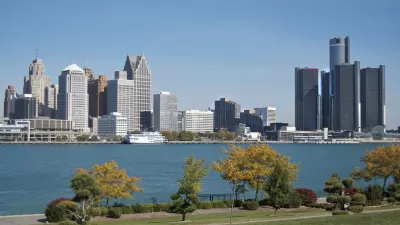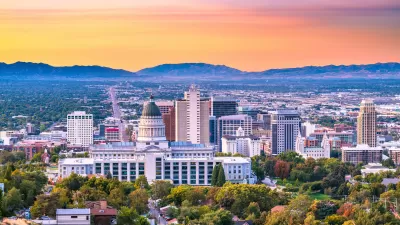A new talking point to support the idea of a comeback for Detroit: brisk business and new investment in the Downtown hotel market.
"The city's hotel market is in the midst of a growth spurt as developers turn derelict downtown buildings into upscale boutique hotels. As momentum builds, even one former by-the-hour motel is getting cleaned up and renamed to attract a more respectable and deep-pocketed clientele," reports JC Reindl and John Gallagher.
The new developments are following a strong showing for the existing hotels in the city in 2014: "Spurred by a rebounding auto industry and convention business, as well as growth in entertainment options, downtown Detroit hotels saw their best performance in years in 2014, hitting an average occupancy rate of about 66%, according to local hospitality officials. The average nightly rate was $115 to $120." For comparison's sake, the Downtown occupancy rate was 47 percent in 2008.
Reindl and Gallgher give some credit for the resurgent hotel market in Detroit to the "$279-million expansion and upgrade of Cobo Center, the city's main convention facility. The work, due to finish this year, created the Grant Riverview Ballroom and the soaring riverside Atrium, major selling points for attracting new convention business."
The article goes on to provide details about some of the latest hotel projects to open, begin construction, or enter the planning and approval process.
FULL STORY: Why everyone has started building a Detroit hotel

Study: Maui’s Plan to Convert Vacation Rentals to Long-Term Housing Could Cause Nearly $1 Billion Economic Loss
The plan would reduce visitor accommodation by 25,% resulting in 1,900 jobs lost.

North Texas Transit Leaders Tout Benefits of TOD for Growing Region
At a summit focused on transit-oriented development, policymakers discussed how North Texas’ expanded light rail system can serve as a tool for economic growth.

Why Should We Subsidize Public Transportation?
Many public transit agencies face financial stress due to rising costs, declining fare revenue, and declining subsidies. Transit advocates must provide a strong business case for increasing public transit funding.

How to Make US Trains Faster
Changes to boarding platforms and a switch to electric trains could improve U.S. passenger rail service without the added cost of high-speed rail.

Columbia’s Revitalized ‘Loop’ Is a Hub for Local Entrepreneurs
A focus on small businesses is helping a commercial corridor in Columbia, Missouri thrive.

Invasive Insect Threatens Minnesota’s Ash Forests
The Emerald Ash Borer is a rapidly spreading invasive pest threatening Minnesota’s ash trees, and homeowners are encouraged to plant diverse replacement species, avoid moving ash firewood, and monitor for signs of infestation.
Urban Design for Planners 1: Software Tools
This six-course series explores essential urban design concepts using open source software and equips planners with the tools they need to participate fully in the urban design process.
Planning for Universal Design
Learn the tools for implementing Universal Design in planning regulations.
Ascent Environmental
Borough of Carlisle
Institute for Housing and Urban Development Studies (IHS)
City of Grandview
Harvard GSD Executive Education
Toledo-Lucas County Plan Commissions
Salt Lake City
NYU Wagner Graduate School of Public Service





























